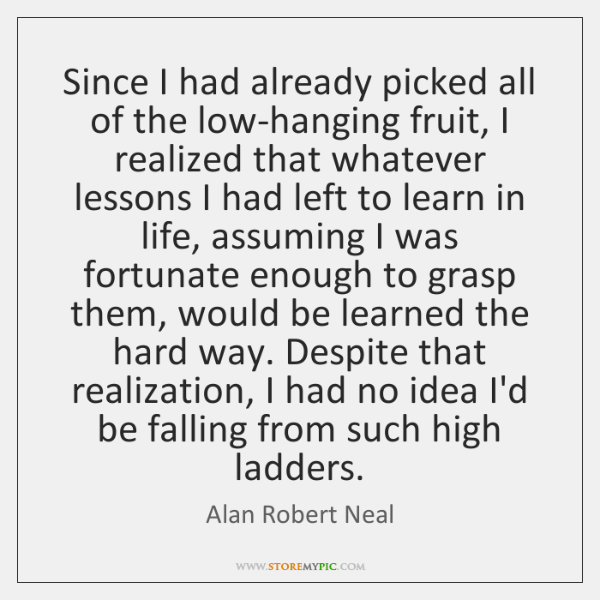There’s nothing wrong with low hanging fruit (especially when the tree is tall).
Low hanging fruit is important whether you are newly navigating your way through your leadership role and still developing your style, or when you’ve become a seasoned pro, looking to reach new levels in your career…nourishment is nourishment (stay with me here).
People tend to either scoff at low hanging fruit or reduce it to that of a too-easy win.

Fact is , when you are needing nourishment, lessons and learnings, you must recognize those low hanging opportunities, they provide satiation and feed your leadership muscle.
Brand new leaders are simply not quite there yet to reach higher up on the tree. They haven’t had the time to develop all the skills of their role and will only be able to do so if they can learn and build on a strong foundation. These low hanging lessons nurture their growth and understanding, and build their leadership muscle as they reach for the higher levels of abundance ahead. Some patience is required at this stage from them and from their peers and leaders. Those early days can be intimidating, you are determined to prove yourself, to appear in complete control and alleviate any concern about your abilities.
For the seasoned leader who may be at a new level in their career or stage in their business, the tendency is to walk right past the low hanging fruit. Not because they are too good for it, but because they stopped looking there for nourishment. Basics were a long time ago, their sites are on the more challenging aspects of their leadership role. Sometimes these leaders can be looked at stubborn or set in their ways, they have come this far and know what works. It can be quite humbling when a situation arises and you are reminded of the lessons learned earlier that you have forgotten the importance of.
We are trained to be ambitious, to look at what’s in front of us, perhaps just out of reach, or what’s next. Often struggling to get there while the answer may be right at our feet. Perhaps we need to revisit our priorities to best leverage our time, or remember to honor our relationships with a please and thank you, or to be nice rather than be right.
A way to remember and stimulate your considerations of what some of those lessons are, is to increase your self-awareness about it. Start noticing what piece of your life’s structures…work, family, mental, physical, financial and spiritual health…you feel a deficit in. Do you feel guilt or shame for not tending to one of these pillars? See what basic lesson you could be neglecting, where some attention to it could spark some progress.
For instance, consider time management a low hanging fruit. In leadership, this lesson is vital to learn so when multiple responsibilities and demands are on your plate, the skill of prioritization and boundary setting are in place for productivity and sanity.
If building relationships and connections is higher up in the tree, look for the easier to grab lessons of social graces and curiosity.
Perhaps getting in shape is your low hanging fruit, especially when it’s been easy up until now, you may have to revisit discipline to achieve commitment.
If making decisions is just out of reach, feed on the fruit that bears the power of understanding your values and being in alignment with your vision.
Strangely Enough
It’s all perspective on who thinks what is low hanging fruit. A lesson you consider rudimentary, for another is foreign. We all are unique, carrying different strengths and weaknesses (one wo/man’s low hanging fruit is another’s savory prosciutto wrapped melon). That’s what personal development is, filling your individual gaps so all your life structures are sound.
You can do this for yourself and others. In leadership roles, discussing the learnings gleaned here with your leaders will 1-be oh so appreciated by them, 2-allow you to feel pride in helping them learn, grow, and be in alignment 3-worth it in the long run. We often skip over the feedback with these basics because they seem inherent and people are hesitant to come forward about struggling with them in the first place. Yet it is comforting for people to understand it is part of the journey, that others have been there before learning those same lessons that lead to an abundance of perspective and knowledge.
Food for thought.


